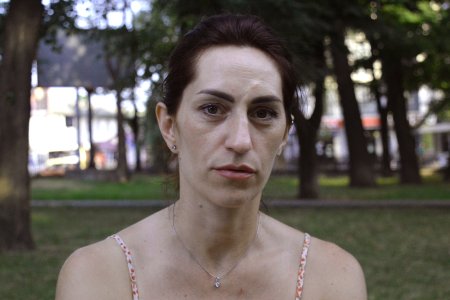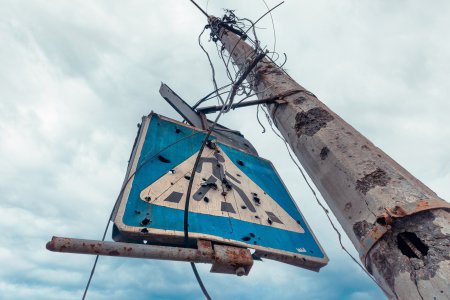In 2014, it was just a taste of what would come on 24 February 2022. Yes, there was fighting in the area, but not in the city itself. It was outside the city, about 20-30 km away. Everyone knows that in January 2015, the town was shelled. There were casualties and destruction. It can be said that this was our first experience. Until 2014, everything was quiet and peaceful. People went to Russia to work and live.
But in 2014, they showed their face. Later, they kept saying: “It’s not us, it’s not us.” I think now everyone has seen who they are.
How did the local population treat the Russians? I can’t say for sure, but probably 50% — 50%. Since 2014, the city began to develop: people built and brought beauty. I do not know what all this was connected with, but the city began flourishing. Until 2014, it stood as it was under the Soviet Union, and then it started to develop and would develop further.
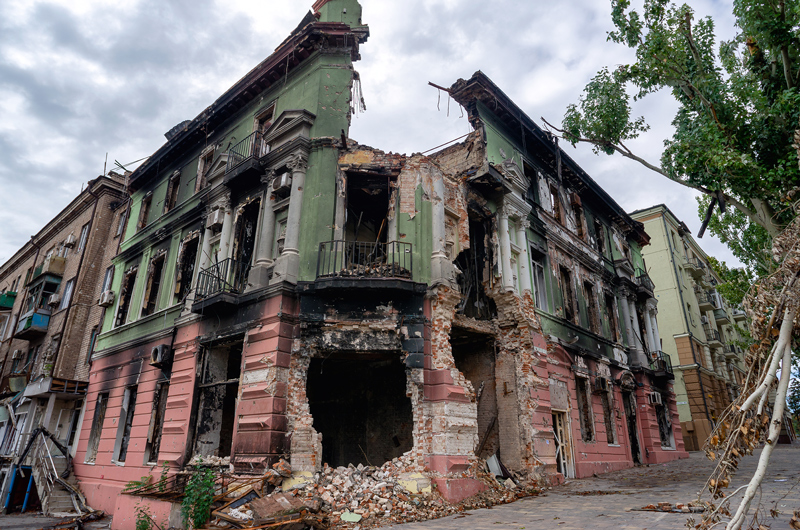
How did the war of 2022 burst into your life?
Everyone heard. There was a powerful blow at five in the morning. We’re close to the line of demarcation. Then the shelling of the outskirts began. The Internet was still there; everyone watched the news and understood that they were bombing entire Ukraine. People started leaving en masse. Many have left. Good for them because those who did not, unfortunately, not all of them were able to go later.
I sent my wife and children to relatives in the Zaporizhzhia region. And I stayed in the city. My mother came to me because Russian aviation had already begun to work in the village where she lived, not far from Mariupol. Mother became scared and asked: “Can I come to you in the city?” So she came and stayed with me.
Were there any destructions of civilian facilities related to the presence of military personnel in them?
I’ll tell you this: that village had no military facility. There were no soldiers there. There were no units, military installations, or critical infrastructure — an ordinary town. The Russians said they shelled the military, but no soldiers were there.
Have you witnessed the destruction of civilian facilities?
In the early days, in my area, it was deafening. Everything was trembling, but it did not fly into the site itself. And then the shell hit the school next to my house and my house. Over time, out of ten buildings, probably two survived.
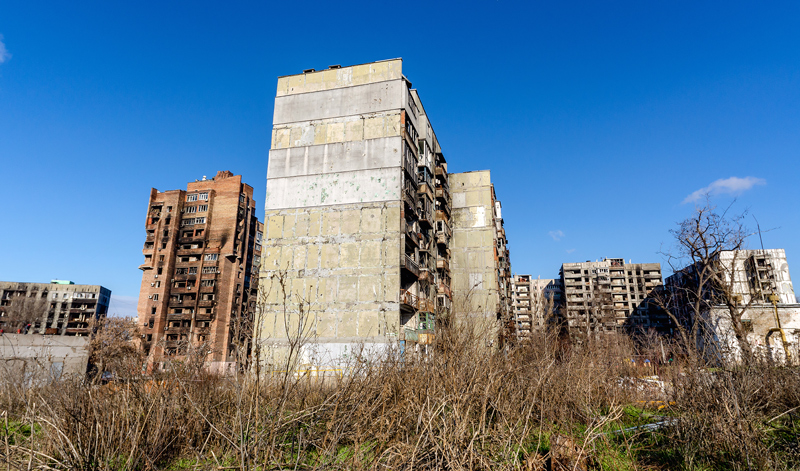
Where were the locals during the shelling?
Someone was in the apartment, someone — in the basement. Someone did not leave the basement, and someone did not even go down to the basement. People decided for themselves where they should be during the constant shelling and bombing. We were in a shelter: we moved out of the apartment because it became too “hot”.
Do you know about civilian casualties?
A lot of people died. Even those who were hiding in shelters perished. Basements were covered because the upper floors fell right on them. I don’t know the official statistics, but many people died there. Neighbors buried them in their yards. There were such situations where the house was standing between Ukrainian and Russian tanks firing at each other. People sat in the house and did not know what to do. How can you leave the house when two tanks are working on each other?
Did you have difficulty accessing food?
There was a humanitarian catastrophe in Mariupol. There was no water, electricity, or gas. Those who had food left in the freezers were very lucky. But for those who did not ... People emptied grocery stores.
Everything was destroyed because people needed to get food somehow. People who couldn’t get food in the store set traps and caught pigeons in the yards.
That’s how we ate. We melted the snow. Well, if the temperature was above zero, we collected rainwater. We used that water for cooking.
We went outside but didn’t know when the bombings would be. They practically did not stop. It could subside for a minute, but it could be an hour before they stop. We rushed outside to cook. If we succeed — good; if not — o well, what can you do? We cooked outside and under bombardment. Someone went out for a smoke but did not return to the shelter. And so it was.
Did you have access to medical services?
We had a volunteer doctor or paramedic. Who he was, I didn’t know. He helped the children: there were many children and all in a closed space. And there was an infection, poisoning, and not enough air. So he helped as best as he could.
How did you evacuate from your settlement?
When the Russian troops entered, they said, “Everyone goes out.” They checked all the houses and basements. They saw no soldiers and said: “Come out.” — “Where?” — “There are evacuation buses.” As we went there, all the buses were with Russian numbers. They took people to Donetsk, Rostov. There were probably 40 buses that day. All filled with people. More people were leaving in their cars. Some were on three wheels, some were pushing the car, while others were pulling something. Cars were filled with people. Many people left that day because the city was already actually occupied.
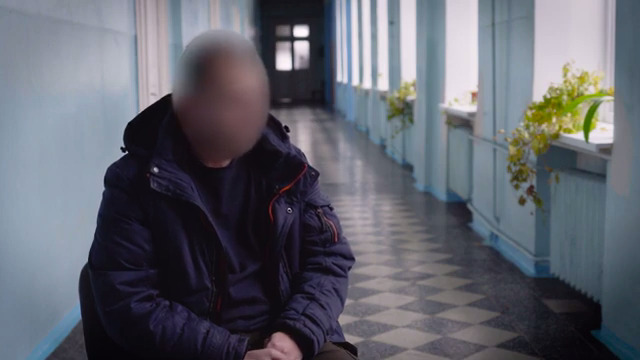
We first got to our village, and then I went to my family in the Zaporizhzhia region. The village has also been occupied, but we were lucky that the neighbors drove out. They took us with them, and we went to Zaporizhzhia. We drove for 12 hours: checkpoint after checkpoint. We passed 25 checkpoints, five of which were ours. We rode in a convoy, and we were scrutinized at every checkpoint. Independently (outside the column), it was impossible to pass. There was a specific evacuation time. I don’t know if it was a green corridor or not.
We had two children, and we were not checked vigorously. Some cars may not have even made it to Zaporizhzhia. There was one moment when Russian aviation flew by and fired in our direction. They aimed not at the column itself but at our positions.
Children saw planes and rockets and got scared. Something was burning behind the hillock. But, God bless, our column was not fired upon.
Do you know what is happening in Mariupol now?
Now, there is no city. It is unrealistic to live there. No light, no water. They say that new houses are being built there. But we all understand how it happens. They develop on the outskirts. They built it, and you walk along the city: oh, what beautiful houses. However, everything was bombed and collapsed in the city proper, and it remained so.
